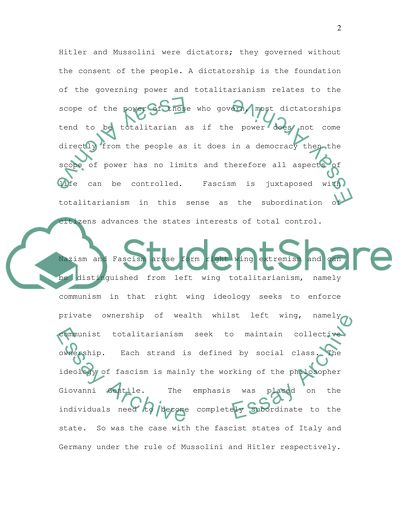Cite this document
(“Fascist Regimes of Italy and Germany Essay Example | Topics and Well Written Essays - 2000 words”, n.d.)
Fascist Regimes of Italy and Germany Essay Example | Topics and Well Written Essays - 2000 words. Retrieved from https://studentshare.org/history/1526388-fascist-regimes-of-italy-and-germany
Fascist Regimes of Italy and Germany Essay Example | Topics and Well Written Essays - 2000 words. Retrieved from https://studentshare.org/history/1526388-fascist-regimes-of-italy-and-germany
(Fascist Regimes of Italy and Germany Essay Example | Topics and Well Written Essays - 2000 Words)
Fascist Regimes of Italy and Germany Essay Example | Topics and Well Written Essays - 2000 Words. https://studentshare.org/history/1526388-fascist-regimes-of-italy-and-germany.
Fascist Regimes of Italy and Germany Essay Example | Topics and Well Written Essays - 2000 Words. https://studentshare.org/history/1526388-fascist-regimes-of-italy-and-germany.
“Fascist Regimes of Italy and Germany Essay Example | Topics and Well Written Essays - 2000 Words”, n.d. https://studentshare.org/history/1526388-fascist-regimes-of-italy-and-germany.


